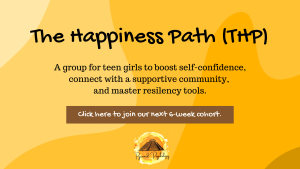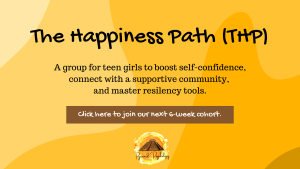When Life Doesn’t Go as Planned…

When Life Doesn’t Go as Planned: How to Handle Disappointment and Move on Stronger!
You studied hard, but that test score? Yikes. You put yourself out there, but that friendship still feels one-sided and draining. Maybe your family rules are keeping you from that weekend hangout, and it sucks! Disappointment stings, no doubt. Here’s a question- how well are you able to shake it off and try again? Because that is where your power lies.
Bouncing back when life doesn’t go as planned isn’t about ignoring the feels (we’re all about being real with feelings in The Happiness Path group). It’s about giving yourself space to feel whatever is coming up, then getting to a place where you can flip the switch. What can you learn? What’s Plan B? What’s the next step I want to take? Every setback is a setup for something better—if you let it be. The real secret? Shifting your attention from what went wrong, to what’s next.
>>> FREE DOWNLOAD: Mental Health Handbook for Teen Girls <<<
So next time life throws a plot twist your way, remember: You are way more resilient than you think. And if you’re willing to try a little help finding your bounce-back magic, THP (The Happiness Path) is your go-to space to build confidence, crush stress, and handle life’s ups and downs.
Chantal Côté
Registered Psychologist & Teen Life Coach
Founder of Pyramid Psychology and The Happiness Path


 From Feeling Alone to Connected: Finding Your Way out of Loneliness
From Feeling Alone to Connected: Finding Your Way out of Loneliness
 How to Help Your Teen Become Brave
How to Help Your Teen Become Brave
 Why Your Teen Feels Unmotivated
Why Your Teen Feels Unmotivated How Teens Can Eliminate Negative Self Talk
How Teens Can Eliminate Negative Self Talk


 About Kari
About Kari


 is that it’s not an option to do nothing. However, the teen can have a say in how they receive support.
is that it’s not an option to do nothing. However, the teen can have a say in how they receive support. About Jessa
About Jessa solation and withdrawal – Pulling away from family and friends, spending excessive time alone.
solation and withdrawal – Pulling away from family and friends, spending excessive time alone.
 further away.
further away. About Chipo
About Chipo











